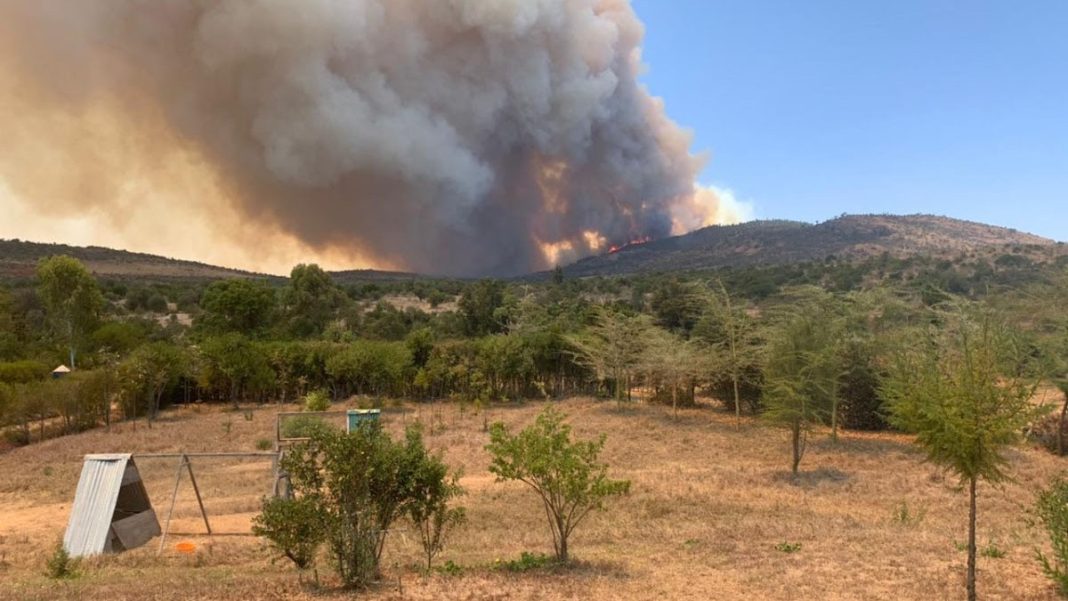According to new reports, six British army soldiers from a regiment that accidentally set fire to the 12,000-acre Loldaiga ranch – Laikipia may be discharged after testing positive for cocaine.
Hundreds of soldiers were tested at their Lancashire barracks weeks after returning from Laikipia in April, amid suspicions that some had used drugs.
The Ministry of Defense in the United Kingdom conducts drug tests on its soldiers on a regular basis.
The fire resulted in the annihilation of numerous species of fauna and flora.
According to sources, six soldiers from C Company and D Company of the Mercian Regiment (2 Mercs) tested positive for the class A drug at the end of last month.
Another two soldiers’ results were “sub-positive,” meaning that traces of drugs were discovered but they did not automatically fail the mandatory drug test.
Soldiers have dubbed C Company “cocaine company” in light of the findings.
Rampant Drug Use
Hundreds of British army personnel are dismissed every year after testing positive for drugs in mandatory tests, according to previous reports, with the number of sackings steadily increasing, according to the guardian.
In 2019 alone, about 660 soldiers and reservists – nearly a battalion – were discharged after testing positive for illicit substances, mostly cocaine, in mandatory tests, according to Ministry of Defence data released under Freedom of Information laws (CDTs).
Following approximately 630 firings after positive CDTs in 2018 and 580 in 2017, the sackings occurred. According to the FOI reports, there were 270 discharges up until mid-July this year after mandatory drug tests revealed drug use.
Cocaine is the most commonly detected drug, followed by cannabis and ecstasy, which all leave the body within a few days. Numerous tests have also revealed the presence of ketamine, steroids, and benzodiazepines.
The British army has stated that it does not tolerate drug use and that discharges may be delayed, but it is understood that top military brass believe that Britain has a drug problem, and that the army, like any other organization, reflects societal issues.
Experts have long suggested in reports that people who are subjected to mandatory tests are more likely to use drugs that leave their system quickly.
Hence making cocaine – which is only detectable in urine for two to three days after use – more appealing than cannabis, which can be traced for weeks.
Soldiers are only tested for drugs in their urine by the British army. It is illegal to test blood or hair, despite the fact that the latter may contain traces of drug use from months ago.
Ongoing Court Case
This new revelation comes at a time that more than a thousand residents have filed a lawsuit seeking compensation for the destruction of their ecosystem and natural habitat.
The African Centre for Corrective and Preventive Action (ACCPA) wants the British Army Training Unit in Kenya (Batuk) and the Loldaiga Conservancy compelled to compensate residents affected by the fire for environmental damages.
Botanists and zoologists are currently conducting an environmental audit to determine the exact amount.
The lobby group also wants the British army and its commanding officer, as well as the conservancy, to bear responsibility for restoring the 12,000 acres of bushland that were destroyed, according to a petition filed at the Environment and Land Court in Nyeri.
The ACCPA has accused the parties of failing to put in place fire-prevention measures while British troops train on the Lolldaiga Hills, putting wildlife in the conservancy at risk.
Thousands of animals, including endangered elephants and Grevy zebras, call the conservancy home.
The Social Media Post
However, the British military police are investigating a social media post by one of the British Army soldiers that appeared to boast about killing an elephant in an earlier fire.
“I’m completely shocked. That is outrageous, and I am disappointed that a British soldier would post something like that.
It’s being looked into “Jane Marriott, the British High Commissioner to Kenya, stated.

